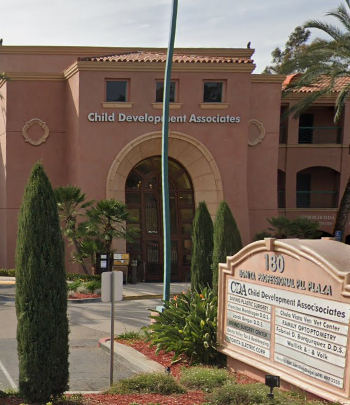Diabetes Can Affect Your Eye Health
When you have diabetes, you may have to make several lifestyle adjustments to ensure your blood sugar levels are stable. These could be changes like watching what you eat or working out, but they can also include more frequent visits to your family doctor or eye doctor.
Diabetes can increase your risk of developing various eye diseases and conditions, many of which have no noticeable early symptoms. One of the only ways to detect these issues is to ensure you have regular eye exams. By detecting these issues early, we can help manage your eye health and preserve your vision.
For diabetic eye exams in Bonita, visit Total Vision. Get started today by booking your appointment.
What Is Diabetes?
Diabetes is a disease that affects how your body manages blood sugar. Depending on the type of diabetes, you can have difficulty producing insulin (a key hormone used to move sugar into your blood cells) or issues using insulin efficiently.
Diabetes can affect both children and adults, and the risk of developing this disease can be passed from parent to child.
However, you may be able to manage your symptoms with insulin injections, eating healthy, and exercising regularly. Please speak to your family doctor to determine which treatments are right for you.


Diabetes & Eye Problems
Our optometrists can detect the early signs of diabetes simply by examining your retina during an eye exam.
Because many of these diseases and conditions can develop without noticeable early symptoms, we recommend having an annual eye exam if you have diabetes. Increased blood sugar levels can also cause bouts of blurred vision and can damage your eye’s blood vessels.
Some of the most common eye issues related to diabetes include:
Diabetic Retinopathy
Diabetic retinopathy occurs when high blood sugar damages the blood vessels in your retina. These damages can cause the vessels to break and leak fluid into your retina, eventually leading to vision loss.
In advanced cases, abnormal blood vessels may grow to compensate for the blood loss, but these vessels can also break, increasing your risk of retinal detachment.
Another disease, diabetic macular edema, can occur as a complication of diabetic retinopathy. As fluids leak from your retina’s blood vessels, they can pool underneath your macula, causing swelling and damage to your central vision.
Open-Angle Glaucoma
Open-angle glaucoma is one of the most common versions of glaucoma, and diabetes can double your risk of developing it.
Glaucoma is a group of eye diseases that damage your optic nerve, usually by increasing your intraocular pressure. However, other types of glaucoma can occur without raising your intraocular pressure.
Learn more about glaucoma on our Eye Disease Diagnosis & Management page.
Cataracts
Cataracts are a common eye condition characterized by your eyes becoming hazy or foggy as you grow older. Cataracts can develop as proteins in your eye’s lens clump together, causing the lens to naturally become more rigid and opaque over time.
Cataracts are a natural part of the aging process, but diabetes can increase your risk of developing them earlier in life. You can manage vision problems caused by cataracts with glasses or contact lenses, but only cataract surgery completely removes the cataract from your eye.
Get Help with Diabetic Eye Disease
Through our partnership with Total Vision, we have access to advanced diagnostic technology to observe your eye health and look for signs of diabetic eye disease.
We ensure these devices are safe and relatively comfortable for every patient. Start monitoring your eye health today by booking your eye exam at Total Vision Bonita. Our help can put you on the path toward preserving your eyesight.
Our Location

Visit Us
We are half a block south from the Corner of Otay Lakes Road and Bonita Road.
You can find us in the Bonita Professional Plaza just south of Bonita Road.
- 619-267-9900
- 619-267-9910
- [email protected]
- Suite 201
180 Otay Lakes Road - Bonita, CA 91902
Hours of Operation
- Monday: 8:00 AM – 5:00 PM
- Tuesday: 8:00 AM – 5:00 PM
- Wednesday: 8:00 AM – 5:00 PM
- Thursday: 8:00 AM – 5:00 PM
- Friday: 8:00 AM – 4:00 PM
- Saturday: 8:00 AM – 12:00 PM
- Sunday: Closed


Our Brands




Our Google Reviews
Be the First to Know,
Be the First to Win.
From eye health insights to exclusive giveaways, your feed just got a lot clearer.








